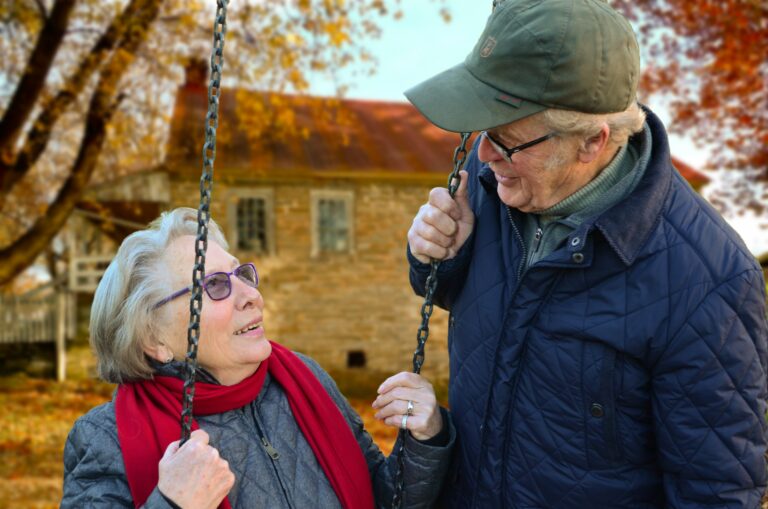
Protecting Your Assets from Nursing Home Costs
Elder law attorneys see firsthand the financial strain that nursing home expenses can place on families. With the rising costs of long-term care and the complexities of becoming eligible for Medicaid benefits, it’s crucial to understand how to protect your nest egg. This article sheds light on the financial strain many Americans face regarding elder care costs. Using planning methods to preserve your hard-earned assets while ensuring quality care for yourself or your loved ones by working with an experienced elder law attorney is crucial. Start the discussion early with your spouse or family about ways to protect your assets to cover nursing home or in-home care, if and when needed.
The Financial Challenges of Long-Term Care in America
The growing number of seniors requiring long-term care presents a significant challenge in the United States. This demographic shift, primarily due to the aging Baby Boom generation, has profound implications for families and the healthcare system. From 1960 to 2021, the number of Americans aged 85 and older increased more than six times the rate of the general population, cites a recent article from the New York Times, “Facing Financial Ruin as Costs Soar for Elder Care,” that highlights the significant long-term care issues, especially for middle-class Americans. A Health and Retirement Study found that individuals with greater long-term care needs were much more likely to exhaust their savings than those who did not have long-term care costs.
Why Do American Seniors Face Such High Costs of Care?
The United States allocates a smaller portion of its GDP to long-term care than other wealthy nations. This underinvestment is evident in the insufficient financial support for elder care, leading to significant out-of-pocket expenses for families. The healthcare system also faces staffing shortages, both for in-home care and long-term care facilities, further complicating access to necessary services.
Federal Programs are Not Equipped to Help Protect the Elderly in Long Term Care
Despite the demographic changes in the United States, including longer life spans that increase the number of seniors who need care, federal long-term care policies have remained largely unchanged since the inception of Medicare and Medicaid in 1965. This stagnation in policy reform fails to address the evolving needs of an aging population, leaving many families to shoulder the burden of care. Recent studies have shown that very few people learn how to protect assets by developing a plan for paying for elder care when needed.
How Do Many People Pay for Nursing Home Costs?
Because Medicare does not pay for long-term care costs, Medicaid is reserved for low-income people. The program has difficult eligibility requirements; private pay when a loved one needs nursing home care is often the only choice for many people. Individuals will deplete their savings or personal assets to pay for nursing home care until they qualify for Medicaid benefits.
A Personal Story of Financial Ruin to Pay for Elder Care
The story of Gay Glenn and her mother, Betty Mae Glenn, poignantly illustrates the harsh financial realities many American families face when dealing with long-term care for elderly relatives. The cost of Betty Mae’s care in a nursing home in Kansas was staggering, exceeding $10,000 per month. To afford this, Betty Mae had to deplete her savings entirely. This process of spending down personal assets to qualify for Medicaid is a common yet financially devastating reality and a mistake that many Americans make to afford long-term care.
At age 61, Betty Mae’s daughter, Gay Glenn, relocated from Chicago to Topeka and moved into one of her mother’s rental properties to oversee her mother’s care and finances. Under the complex and often perplexing rules of the state Medicaid program, Gay had to pay rent to her mother. This rent then contributed to the funds used for Betty Mae’s nursing home care. The financial intricacies didn’t end there. After Betty Mae’s passing, Gay faced the additional burden of selling the family home. From the sale, approximately $20,000 had to be paid back to Medicaid, as per her lawyer’s advice. This repayment reflects the Medicaid estate recovery process, where states recoup costs for care provided.
Why Planning Now for Asset Protection Is Crucial
Over the last two decades, the median annual cost of all types of long-term care has risen at a rate surpassing inflation. This increase places a substantial financial strain on individuals and families, making long-term care unaffordable for many. Asset protection is not just about preserving wealth; it’s about ensuring that you or your loved ones receive the necessary care without depleting all your resources.
How Does Estate Planning Protect Assets from Elder Care Costs?
Although many people think they are not wealthy enough for estate planning, the truth is that everyone needs to have an estate plan. Seniors often do not plan because they anticipate that they can stay home and that their spouse and children will manage their care. Yet the financial strain of providing in-home care can be just as burdensome as when the senior goes into a nursing home.
Various types of trusts and a well-crafted estate plan can include provisions for long-term care and play a pivotal role in asset protection and/or Medicaid eligibility. Estate planning protects seniors’ savings rather than spending all their wealth until they are practically impoverished.
How Do You Qualify for Medicaid without Losing Everything?
Applying for Medicaid without making common mistakes like gifting property to spend down countable assets is complex. However, an experienced elder law or estate planning attorney can use strategies like an asset protection trust to shield your hard-earned wealth from nursing home care costs, while enabling you to qualify for Medicaid.
How Can an Elder Law Attorney Help
Elder law attorneys specialize in Medicaid planning and asset protection. They have experience guiding seniors to apply for Medicaid while shielding assets. Since every family’s situation is unique, working with a knowledgeable professional who can provide strategies tailored to different family dynamics and financial situations is essential. The key is to talk with family members early about how long-term care costs will be managed in the future so that if a loved one enters a nursing home, the family does not face financial burdens. However, even if a senior family member is already receiving long-term care, working with a professional is essential now to protect the individual’s remaining life savings.
Conclusion: Protecting Your Assets is Possible
Early planning is critical as it’s pivotal to be aware of:
- the rising costs of nursing home care and the importance of asset protection.
- the role of trusts and estate planning in protecting the family’s wealth.
- working with an elder law attorney to apply for Medicaid and avoid common mistakes.
- the importance of early planning and using available tools and resources.
Protecting your assets from nursing home costs is not only possible but essential. With the proper planning and legal strategies, you can ensure that your or your loved one’s care needs are met without sacrificing your financial security.









